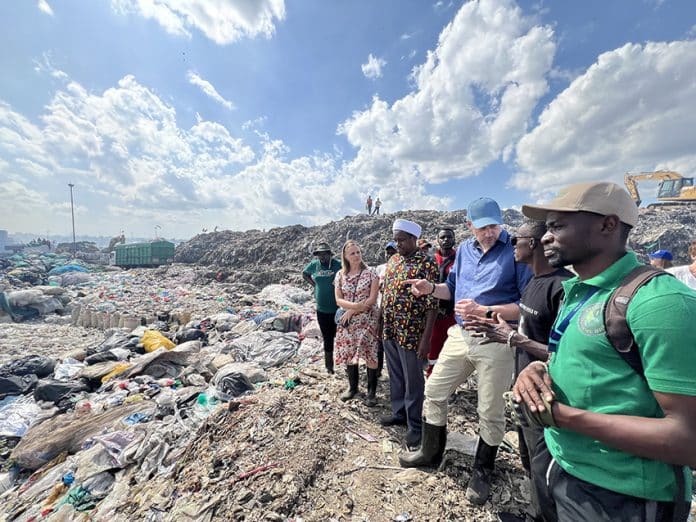
A key aim of Denmark’s development cooperation strategy is to protect nature and help countries build their resilience to climate change.
To achieve that goal, Denmark has partnered closely with the United Nations Environment Programme (UNEP) and is one of the organization’s strongest financial supporters.
Danish environment minister Magnus Heunicke said there is a simple reason for that collaboration.
UNEP, he believes, is uniquely placed to address the triple planetary crisis of climate change, nature and biodiversity loss, and pollution and waste, which is imperiling lives around the world.
Existential threat
“We are facing an existential threat to humanity,” Heunicke said earlier this year at UNEP headquarters in Nairobi, Kenya. “That is why we need UNEP. We need someone to lay out the facts [and] get countries to work together.”
Denmark was one of 48 nations in 2023 to contribute its full share to UNEP’s Environment Fund, the organization’s main source of flexible funding and the bedrock of its work on the triple planetary crisis.
Despite being home to just 6 million people, Denmark is the sixth-largest benefactor of the fund, providing US$7.2 million last year. (The country made another US$7.7 million in earmarked contributions.) Denmark’s support for the Environment Fund has increased 50 per cent over the last few years.
Warmest year on record
The country’s collaboration with UNEP comes at a critical time for the Earth. This year is poised to be the warmest on record, the latest sign humanity is not doing enough to slow climate change. Meanwhile, a nature crisis is pushing one in eight species towards extinction while pollution is claiming millions of human lives each year.
“As the human race, we must completely change the way we look at the planet (and) face the fact that there is no alternative,” said Heunicke.
“It is possible to change course and to save the planet. But time is running out.
Buy less clothes
Through its international assistance programmes, Denmark is committed to helping the world’s developing countries adapt to climate change, leverage renewable energy, safeguard nature, rein in plastic pollution and embrace more sustainable consumption habits, especially for textiles.
During a recent trip to Nairobi, Heunicke visited the Gikomba market, where sellers often repurpose used clothes from Europe. The problem: the supply of textiles is more than retailers can handle and many end up dumped in the street and clogging waterways.
“We really need to buy less clothes and stop this export to other parts of the world,” said Heunicke.
See more here.




